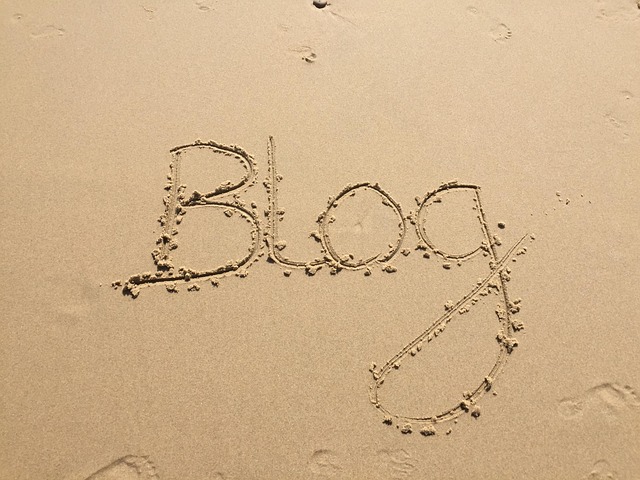Prashant Tamang's death due to 'cardiac arrest', what is this problem?
In our society, cardiac arrest and heart attack are considered as one problem. But from a medical point of view, these two are completely different problems.
Singer and actor Prashant Tamang passed away at the age of 42 due to cardiac arrest at his residence in Delhi.
Cardiac arrest is a sudden cardiac arrest that can lead to death within 3 to 5 minutes.
The number of cardiac arrests among young people in Nepal is increasing and modern lifestyle, stress, and lack of sleep are the main reasons.
Kathmandu. There was once a very popular name in the music world - Prashant Tamang.
Tamang, a Nepalese resident of Darjeeling, is the winner of Indian Idol Season 3. In 2007, his voice and personality won the hearts of Nepali and Indian audiences.
In recent years, he seemed to be more busy with films than singing. And recently he made his debut in Bollywood. Along with singing and acting, his simple lifestyle made him an inspiration to many youngsters. But that inspiring character suddenly left this world at the age of 42. The reason was, 'cardiac arrest'.
In the last few years, not only in Nepal, but all over the world, news such as 'He fell and died while walking', 'He died while sleeping', 'Young people who were going to the gym suddenly fainted and could not survive' are increasing rapidly.
In the last few years, not only in Nepal, but all over the world, there are many news such as 'he died while walking', 'he died while sleeping', 'the young man who was exercising suddenly fainted, he could not escape', he fell while talking'.
Sudden death like this is often thought of as a heart attack, but medical science has shown that the reality is different. Doctors say that the real reason for most of these incidents is 'cardiac arrest' i.e. sudden heart failure.
What is cardiac arrest?
Cardiac arrest is when the heart suddenly stops working. Senior Consultant Cardiologist Dr. According to Ranjit Kumar Sharma, the word cardiac refers to the heart and arrest means stopping or stopping. When the electrical system of the heart breaks down, the heart beats irregularly and the heart cannot pump blood, the condition is called cardiac arrest. Dr. Sharma is currently the head of cardiology department at Medicity Hospital.
How can it lead to death? In response, Dr. Sharma says, 'Heart is the most important pump of our body. It continuously carries blood with oxygen to all parts of the body. When a cardiac arrest occurs, the heart suddenly stops working. Its effects start to appear in the brain within a few seconds. The person suddenly faints, breathing stops and the supply of oxygen to the body stops. If the heart does not restart within 3 to 5 minutes, the brain is permanently damaged and death occurs.
Why does cardiac arrest happen?
Dr. According to Sharma, in most cases, heart attacks occur first. A heart attack damages the heart muscle, due to which the electrical system of the heart breaks down, leading to cardiac arrest. During a heart attack, a sudden blockage (clot) forms in the artery that supplies blood to the heart (coronary artery) or the artery is completely closed. This causes the electrical system (rhythm) of the heart to deteriorate due to insufficient blood and oxygen supply to the heart muscle.
After the rhythm is disturbed, the normal movement of the heart is disturbed, leading to dangerous conditions such as ventricular fibrillation or ventricular tachycardia. In this condition, the heart cannot pump blood effectively, the heart only 'vibrates', not pumping. Cardiac arrest in this way Dr. Sharma says.
Also read this
Singer Prashant Tamang passed away
Therefore, if a heart attack is left untreated, it can turn into a cardiac arrest and cause death, he says.
He says that heart rhythm disturbance is another reason for cardiac arrest. "A heart attack, electrolyte imbalance, stress, medication, or congenital causes can cause the heart to beat very fast or irregularly," Dr. Sharma says, 'When the lower part of the heart starts beating very fast or irregularly, the heart cannot pump blood. It can knock down a person in a few seconds.
Cardiomyopathy (thickening of the heart muscle)
Virat Medical College Senior Cardiologist Dr. According to Madhav Bista, cardiomyopathy is the thickening of the heart wall. It makes the heart hard and does not allow blood to fill. This problem is mostly congenital and many are not aware of it. He says that the first symptom is sudden death.
"The most dangerous aspect is that congenital heart disease may be hidden in many young people," says Dr. Bisht. Even if a person with these diseases looks healthy on the outside, the risk of cardiac arrest increases due to sudden excessive stress, alcohol consumption, or physical fatigue.
Therefore, he suggests that young people should also get their heart health checked from time to time. Dr. Bisht says that it is wise not to do too much physical exercise at once and not to insist on alcohol.
Why is cardiac arrest increasing in young people?
In the last 10-15 years, the incidence of sudden cardiac arrest among young people is increasing rapidly all over the world. Nepal is also not exempt from this. The problem of cardiac arrest in Nepal is increasing alarmingly. Sharma says. First cardiac arrest It was considered to be a disease that occurs in 60-70 years, says Dr. Sharma, but now, even in the age group of 25 to 45 years, its number is increasing alarmingly.
According to him, the biggest reason for this is the modern lifestyle. The habit of sitting in front of mobile phones, laptops and screens for a long time has made the body inactive. When physical activity decreases, weight increases, cholesterol increases, blood pressure increases and the arteries of the heart narrow. He says that this situation will later cause heart attack and cardiac arrest.
He was very kind to his three-year-old daughter, he didn't even mention his career for her
Cardiologist Dr. Stress and lack of sleep in today's youth is another main factor leading to cardiac arrest. Bisht says. Dr. Bisht says, "The habit of using mobile phones till 2-3 o'clock in the night, sleeping irregularly, and taking pressure from work makes the electrical system of the heart unbalanced. It causes cardiac arrest, heart attack."
Smoking, alcohol, energy drinks, junk food and processed food have become part of the daily life of the youth. Dr. They cause swelling of body parts, increase blood pressure and damage of arteries. Bista says.
Studies have confirmed that such incidents can happen even after drinking too much alcohol. According to a study published in the National Library of Medicine, excessive alcohol can cause heart rhythm disturbances, which can make the heart beat irregularly. Alcohol lowers blood pressure and causes electrolyte imbalance, which destabilizes the heart. Sleeping drunk also increases the risk of vomiting or respiratory arrest. Those with chronic heart disease or other health problems are at greater risk.
What is the difference between heart attack and cardiac arrest?
In our society, cardiac arrest and heart attack are considered as one problem. But from a medical point of view, these two problems are completely different. Sharma says.
A heart attack is a blockage of the coronary artery leading to the heart and the oxygen supply to the heart muscle is stopped. It damages a part of the heart. But a person who has a heart attack can speak, walk, reach the hospital,'' he says, 'but cardiac arrest is the stopping of the heart. In this condition, the heart cannot pump blood at all. The person immediately collapses, passes out and can die within a few minutes.
According to him, cardiac arrest is a more dangerous condition than heart attack because it has the danger of dying quickly. If CPR and defibrillator are not used immediately, chances of survival are very low. For this reason, defibrillators are placed in sports fields, gyms, airports, large department stores, malls, railway stations, offices, etc. around the world, says Sharma.
Prashant Tamang: 'Poster Boy' of Nepali-speaking unity
"This device is easy to use and gives instructions by speaking," says Sharma, "If someone has a sudden cardiac arrest, anyone can use it to save their life."
What are the symptoms of cardiac arrest?
Cardiac arrest often comes without warning, but before that, the body has already started giving small signals. The problem is, many young people ignore those signs as fatigue or gastric. According to Dr. Sharma, chest pain, sudden increase in heart rate, difficulty in breathing, dizziness are some of its symptoms. Sometimes chest heaviness, burning sensation, pain in the back, neck or left arm can also be signs of a heart attack. Cardiac arrest can occur after a heart attack.
If a young person is experiencing the problem of frequent fainting, shortness of breath while running or climbing stairs, waking up at night while sleeping, then it should not be taken as normal, said Dr. Madhav Bista says. "That's not normal, it could be a sign of hidden heart disease," he says.
Sudden collapse, unresponsiveness, stopping breathing is a condition of cardiac arrest. At that time even a few seconds can be important. Bisht says.
Is it possible to treat patients with cardiac arrest?
Treatment of cardiac arrest is possible, but only within the first few minutes of hospital delivery. Dr. According to Ranjit Sharma, if a cardiac arrest occurs, the first treatment is cardiopulmonary resuscitation (CPR), not medicine. If the person can be rescued by giving CPR and being taken to the nearest hospital, the person can return to normal life. That is why it is called 'Basic Life Supporter'.
Dr. According to Ranjit Sharma, if a cardiac arrest occurs, the first treatment is cardiopulmonary resuscitation (CPR), not medicine. If the person can be rescued by giving CPR and being taken to the nearest hospital, the person can return to normal life. That is why it is called 'Basic Life Supporter'.
If a person suddenly collapses, CPR should be started immediately by chest compressions. He says that if the heart is not started within 3-5 minutes, the brain will be permanently destroyed and the person will die.
According to Dr. Bisht, people who survive cardiac arrest can be treated long-term with pacemaker, medicine or surgery after finding out the cause of the heart problem. He says that after such treatment, he will return to normal life if he pays attention to his lifestyle.










